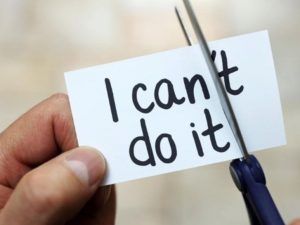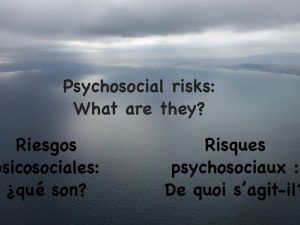
Psychosocial skills develop and blossom in unexpected ways while maladaptive behaviors result from a lack of those skills. My recent article “the origin of psychosocial skills” talks about the various steps that skills go through in their developmental process.
We all need soft-skills and use them the best we can, sometimes with difficulty or through maladaptive behaviors. This article focuses on ways to detect our weak soft-skills and learn to ease our weaknesses.
Introduction
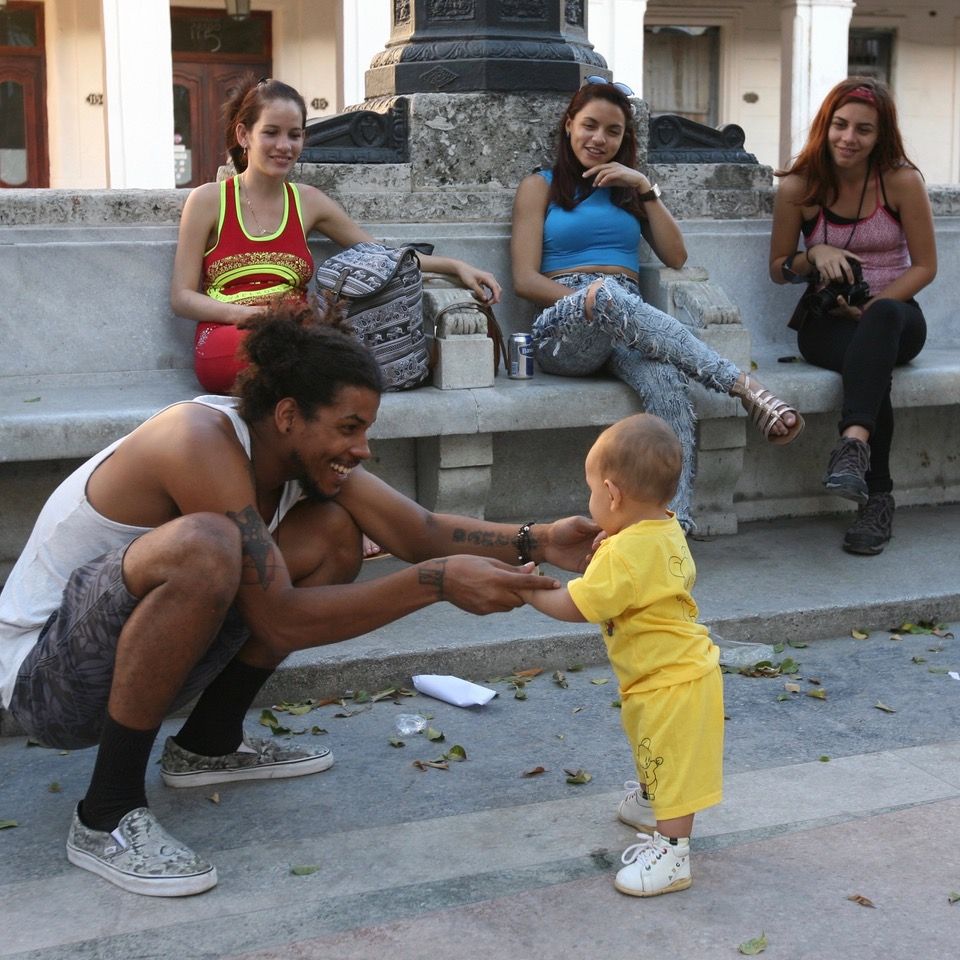
Life is divided in eight categories according to Erik Erikson’s theory: each one includes milestones that allow skills to emerge and become assets. When the child’s development is inadequate, weaknesses linger until they are detected and corrected with behavior modification techniques.
Each stage includes mandatory steps during which psychosocial skills are acquired. During developmental stages, weaknesses lead to dysfunctional learning caused by living conditions, family situation or mental health issues.
This in turn causes maladaptive behaviors.
For each developmental stage, both positive and negative traits are presented in the next section, where weaknesses are noted in italic. The last section summarizes the discussion with a chart of psychosocial strengths and weaknesses.
Erik Erikson’s eight developmental stages
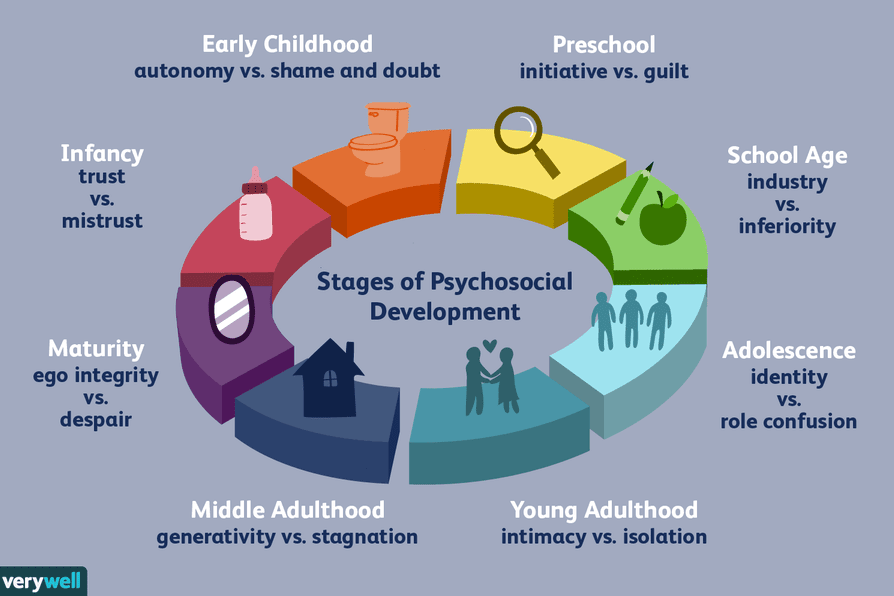
1. From birth to eighteen months, a baby acquires the senses of trust and hope.
The lack of a stable caretaker or insecure living environments lead to a sense of mistrust: the baby grows with fear and uncertainty.
2. From eighteen months to three years of age, the toddler wanders the world beyond the home. New adventures require risk taking and the child discovers talent and other abilities that strengthen the child’s virtue of will.
Without the proper support and care, a toddler may become shameful and withdrawn, turning into a lack of self-esteem.
3. Three to five-year old children constantly ask questions: every secret of life needs a response. Every discovery becomes an adventure and a well-balanced child develops a sense of purpose. Explanations compensate for the immense uncertainty.
The child feels a sense of guilt when questions are not answered; it inhibits creativity and reduces the ability to exercise self-control. Temper tantrums appear and the lack of attention and affection turns into to a deep sense of failure.
4. Stage four covers ages six to twelve, when the child develops a sense of pride. The right use of skills in social contexts is manifested in the child’s confidence and self-esteem.
A child who does not feel accompanied during elementary school will feel inadequate. A sense of inferiority emerges and weakens emotional development
5. Stage five characterizes the adolescent years, when a new personality emerges. The sense of identity settles and this stage shapes the virtue of fidelity through self-acceptance with the new self.
The teen who does not evolve harmoniously during this phase will feel a sense of failure that, in turn, causes an identity crisis as the child enters adulthood.

6. Stage six marks the entrance into adulthood, covering years 18 to 40. Virtues derive from childhood acquisitions and mature during this stage.
A person who doesn’t reach a personal stability by the end of teenage years may suffer from isolation because of the risk of exposing personal shortcomings that generally leads to loneliness & depression.
7. Stage seven marks the period of adulthood, between ages 40 to 65. Usually, people find their marks in society through a sense of usefulness and accomplishment.
Failure to develop a sense of success leads to a lack of productivity towards self and society. When individuals are disconnected in their community, a sense of stagnation dominates with a shallow involvement towards others.
8. Stage eight is the last developmental phase characterized by a continuum that brings wisdom to those looking back at life with acceptance and completeness.
For those whose accomplishments do not match expectations, a sense of failure prevails that leads to bitterness and may end in depression.
Maladaptive behaviors

When psychosocial skills emerge as expected by E. Erikson, the individual acquires a solid set of skills to launch a professional career. When the acquisition does not follow expected trends, maladaptive behaviors arise and complicate the integration into a social working environment.
This chart summarizes skills and weaknesses discussed in the first section:
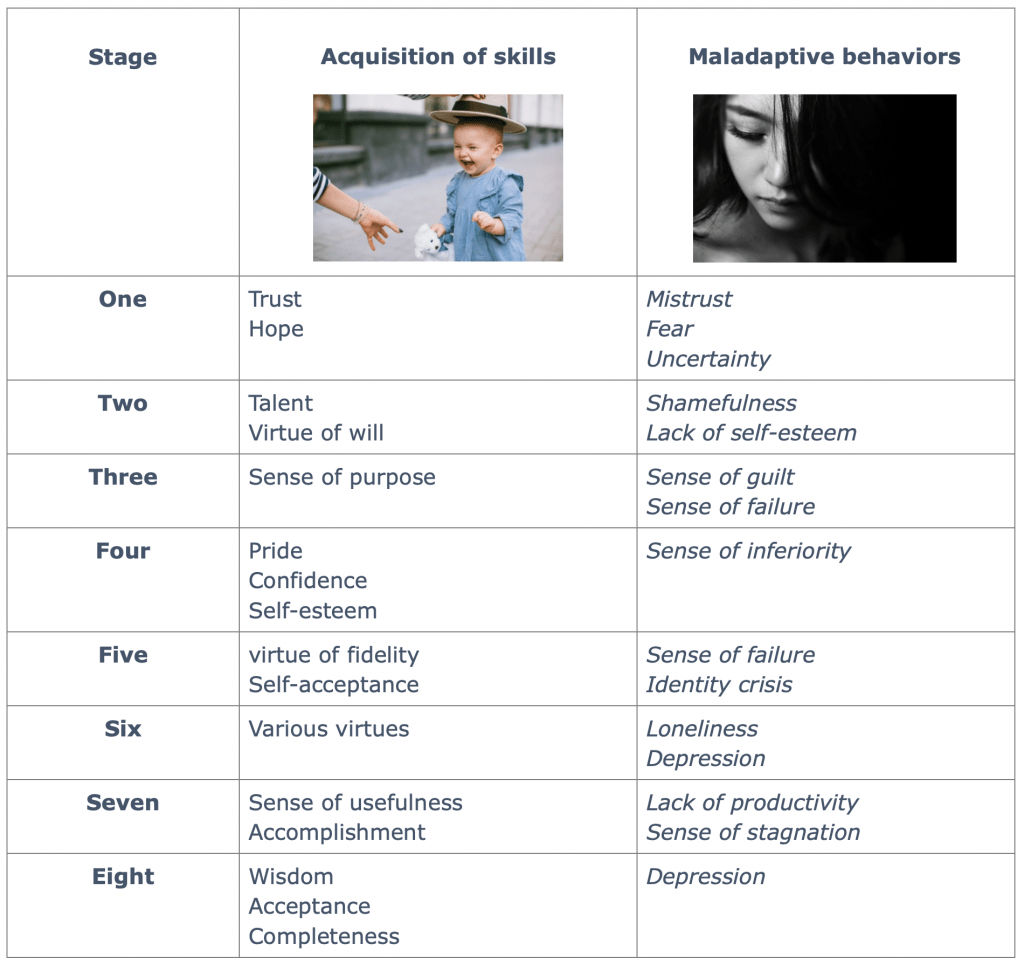
It is possible to compensate for missing knowledge at any age.

Impact evaluations show strengths and weaknesses on the job.
However, most employers expect their employees to arrive on the job with a wide range of acquired skills, including psychosocial skills that we commonly use in business.
For more information on the topic of this paper go to The origin of psychosocial skills.
To receive more information
IMAGO.AUDITING will soon offer webinars to address weak psychosocial skills. Help us prioritize topics by sending the weakness you wish to address first at info@imago-int.eu
Stay tuned at https://imago-int.eu/imagoblog-webinars
About Oliver
Related Articles
0 Comments
Leave a reply Click here to cancel the reply
You must be logged in to post a comment.


